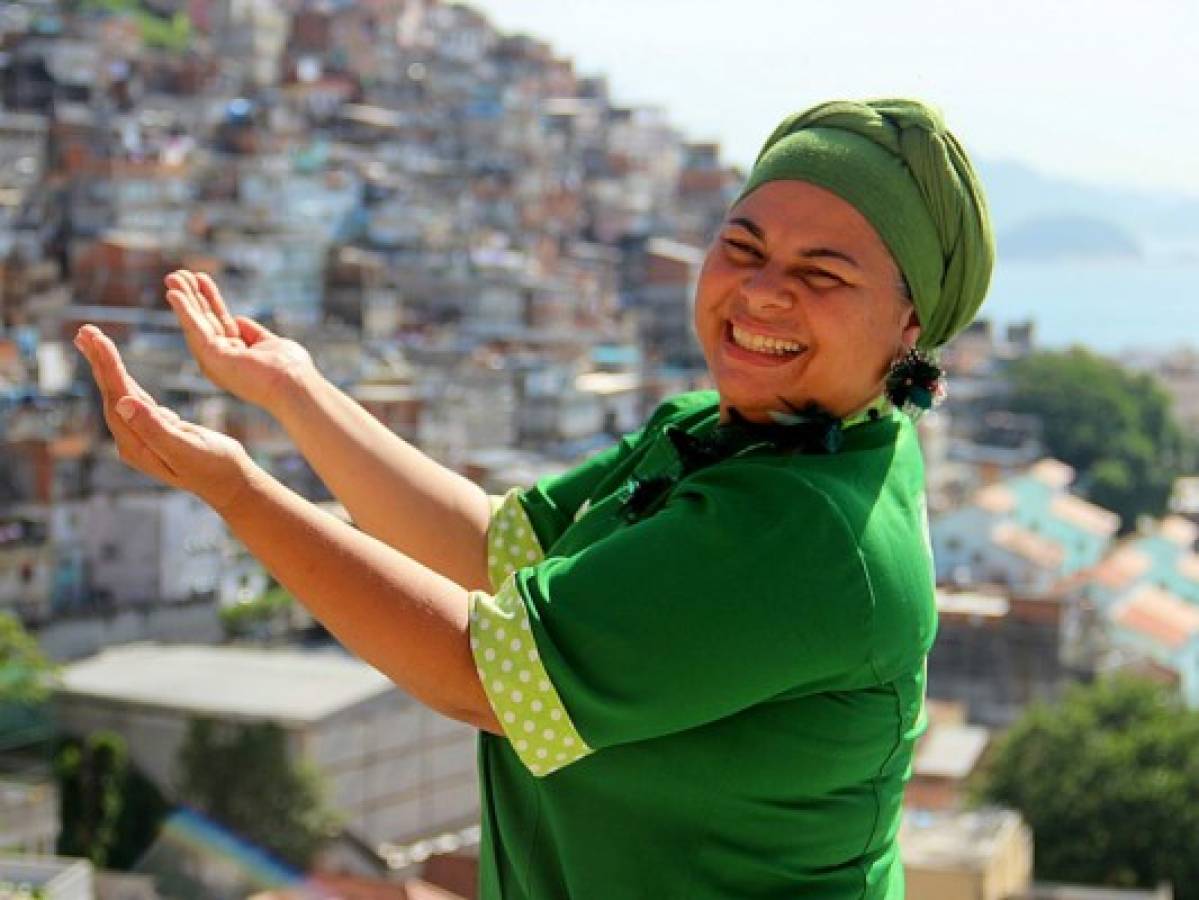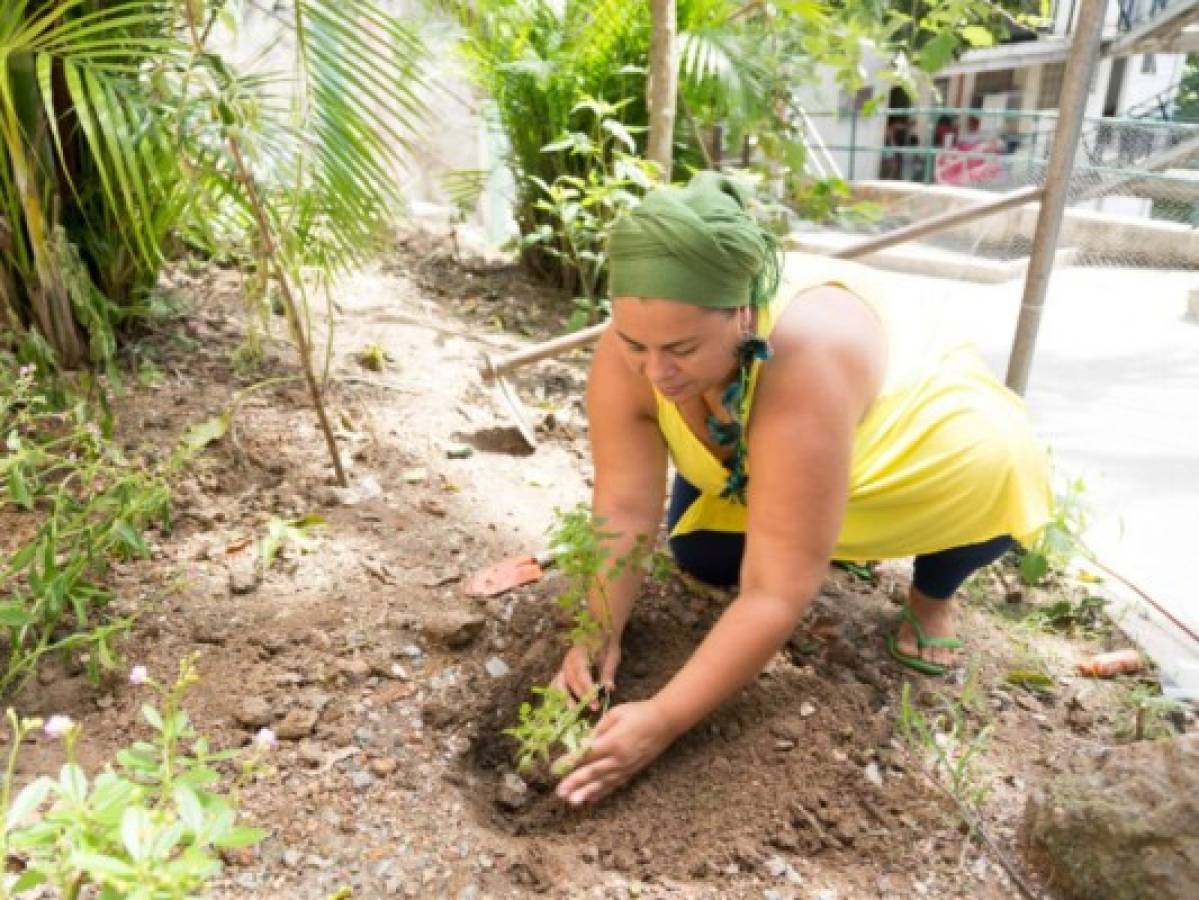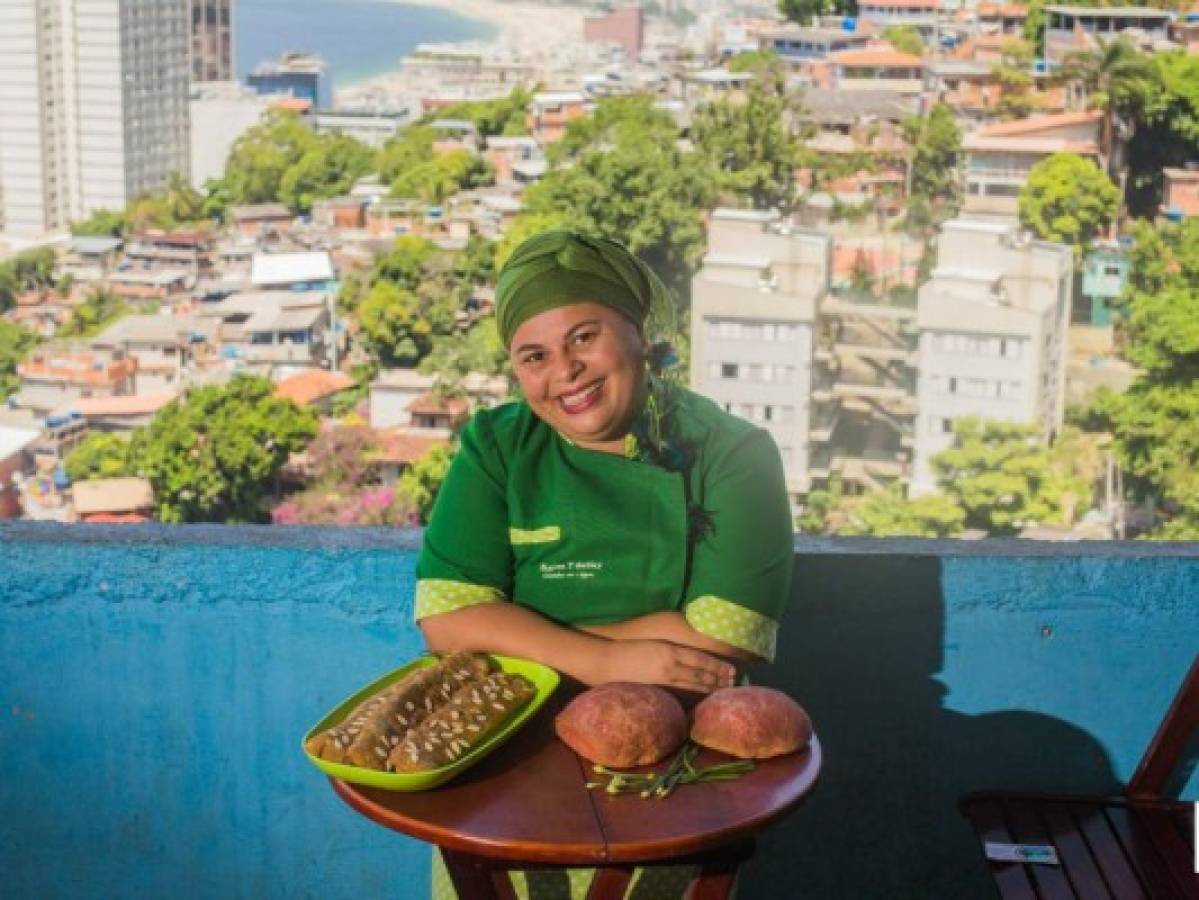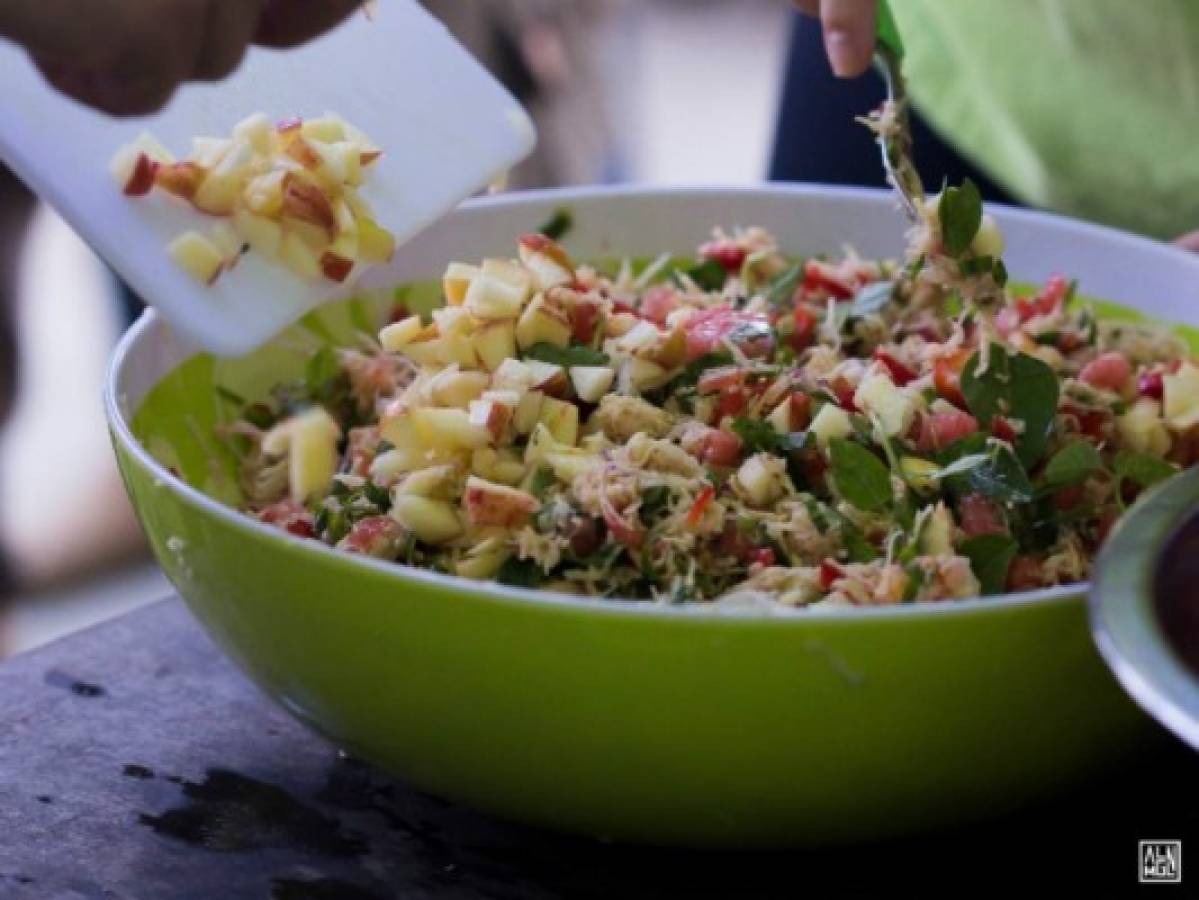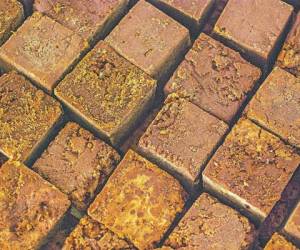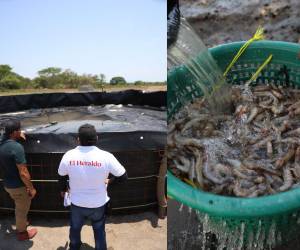“I used to be horribly fussy with food”, admits Regina Tchelly, a 35-year-old cook and entrepreneur, who lives in Morro da Babilônia, Rio de Janeiro. “I wouldn’t go near anything that was whole-grain.” For the past six years, though, she’s been doing precisely that – and more. As head of the Favela Orgânica project, Regina has taught over 30,000 people how to grow their own vegetables in tiny spaces, to transform banana peels, broccoli stems, pumpkin shells and other improbable raw material into delicacies and to turn what they can’t use in the kitchen (a comparatively short list of items after following her tips) into compost for their home gardens.
Wasting food is far from being a negligible problem, both in Brazil and worldwide. According to United Nations’ Food and Agricultural Organization, global food loss and waste amounts to about one-third of all food produced. Brazil is among the top ten food-wasting nations, the World Resources Institute reports, with about 40 thousand tons of food wasted every single year.
For Regina, creating Favela Orgânica was a bit like coming full circle. Born thousands of miles away from Rio, in Serraria (a town of 6,000 inhabitants in the north-eastern State of Paraíba), she grew up in an environment where no vegetable parts were wasted. “Things like seeds, that we didn’t use in the meals themselves, became appetizers or were used in traditional medicine, or to feed livestock. That’s why I don’t see myself as doing something innovative, not really. What I do is to revitalize practices that have always been part of traditional Brazilian cuisine, like feijoada”, says Regina, referring to the renowned pork-and-black-bean stew invented by African slaves in which even pigs’ ears and tails were used.
The founder of Favela Orgânica came to Rio as a teenager and worked as a housemaid for many years before deciding to apply to seed funding from the Agência de Redes Para Juventude (Youth Network Agency), a government program for small-scale social entrepreneurship. That was in 2011, when Regina set up her first workshop in her own home.
“In the first week, we had six people participating. In the fourth week, there were 40, people from all walks of life, from Rio’s favelas but also visitors from Japan, Italy and France”, she says. Networking with the international participants helped to connect the project with the Slow Food Movement and other similar initiatives worldwide.
Brazilian favelas, like other kinds of poor neighborhoods around the world, have become food deserts, and an important part of Regina’s efforts is to turn people’s attention to real food again. “It’s kind of surreal, actually. In the favelas, people sometimes end up spending 12 reais [about 4 US dollars] in a single bottle of Coca-Cola, but refuse to pay 2 reais [0.75 cents] for organic lettuce. We have to turn this around”, she says.
How can it be done? It takes “a lot of love, a lot of patience and the will to change”, according to Regina. “My main concern is to create a kind of gastronomy that is not elitist. My recipes try to create food that is beautiful and also has a lot of affective, heartfelt memory – something that your grandmother could cook for you”, she explains.
Most grandmothers, of course, wouldn’t be daring enough to cook a banana peel brownie or broccoli stem lasagna. For Regina, it is also important to show people that they can cultivate at least some of their food themselves – which sounds like the biggest challenge in the cramped conditions of most favela houses. “But the fact is any place with a little bit of sun will do – you can even fill a shelf with some soil, put it on your wall and grow some vegetables, spices, even tomatoes there.”
Anita de Oliveira Santos, a 42-year-old assistant nurse from Morro da Babilônia, says taking part in Regina’s workshops was a huge eye-opener. “It was my first time participating in community activities in my favela, and at first I was incredulous”, she confesses. Recipes that immediately caught her eye were the banana peel brigadeiro (a traditional Brazilian sweet, usually made with condensed milk and powdered chocolate) and the watermelon rind risotto. “We call it natural Viagra”, laughs Anita.
“My son and my husband kept saying they were not going to eat anything made out of peels and rinds. I cooked the brigadeiro anyway and left it in the fridge. When I came back home after work, not a single one was left. My husband didn’t believe it when I told him he had had the banana peel brigadeiro”, she says.
Regina is about to bring her recipes and advice to a wider audience – her debut as the host of her own TV show at Futura, an educational channel that could be described as a kind of Brazilian PBS, is scheduled for August. “When it comes to avoiding the waste of food, I’m convinced there’s no turning back”, she argues. “The whole world is clamouring for this new approach, and a country like Brazil, with the huge biodiversity we have, has no excuse but to follow it.”
http://www.favelaorganica.com/english/
